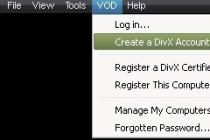I want to place a small memo to help beginner php programmers. What and how to do to learn php and start making money on your craft. If the readers want to give their advice - please, in comments.
* Let's start with one useful thesis - you can learn php without spending absolutely any money. All the necessary materials on php can be found on the net, all the answers to questions can be found on the forums ... no need to go to courses, no need to buy books (in general, books are worth buying if you are too lazy to look for material on the Internet), you do not need to spend any money.
* Invent bicycles. Always write the code yourself - it will help you further. If you need a guestbook, write it, do not use ready-made options, even if you look through and understand its code, this will not replace programming itself, finding bugs, debugging, solving problems associated with writing. Later, when you become a professional, you can and even need to use third-party code, but at the stage of study it will do you a disservice. You can use examples and use someone else's code as a way to solve a problem or find the right algorithm.
* Create “home pages”. This is a good workout. The creation and development of your "home page" will force you to constantly improve your skills, look for ways to improve the site, compete with other owners of "home pages".
* Unite in groups. Try to create a project not alone, but by teaming up with other programmers. Knowing how to work in a team, understand someone else's code and communicate correctly with the team will help you find a good job. Many firms make it one of the main requirements for employment - to work in a team.
* Don't leave the project half way. Always try to follow through on a project you have begun. Even if the need for it has disappeared. The more completed projects you have, the larger the list of jobs you can write on your resume. But it is the finished and finished things that the employer looks at first of all.
* Take on "penny" work. If your track record is not rich, you shouldn't give up low-paying jobs. Let me give you an example from life, when I was just starting to program for money, I went to work in an online game. They offered in general a penny - 2,000 a month. But I took it and as I worked more and more I studied the features of web programming. Seven months later, my salary was 10,000 rubles. And how much experience I have gained is simply innumerable.
* Create large projects. Having big projects in your track record is a huge plus for you.
* Do not stay late at work if you are not interested. If your work has become a routine and does not bring anything new, no knowledge, then give it up. This is the road to nowhere. Always only cling to interesting projects.
* Increase your “general” knowledge. You should not dwell only on php, now the employer requires the programmer not only to create code, but also to make pages more skillfully, configure the server, draw up documentation, work with javascript and much more. By and large, now no one needs just web programmers, but web masters are needed.
* Explore new technologies. New technologies like Ajax will always be your trump card. They have a magical effect on the employer.
Perhaps that's enough for today. There are many more tips, but I'll give them in other posts if there is a demand :)
Good bad
Similar articles
Good afternoon, ladies and gentlemen! In this article, I would like to touch on a very important topic, namely templates in PHP. In this article I will provide a simple but working example of “templates”, and we will also go over the pros and cons of using templates.
From the author: Hello friends! In this article, we will talk about the PHP programming language. We will find out what it is used for, what can be done with it, and what place it occupies in the stages of website development. Also in this article we will look at many ways to make money by being able to program in PHP.
What is PHP and what is it for?
PHP is a scripting language that is very actively used in the development of web applications. PHP is one of the leading languages used in the development of dynamic websites.
PHP is a server-side programming language. All scripts written in this language are executed on the server with the site. To study PHP, develop and debug sites and scripts, of course, you don't have to buy a real server on the Internet. For these purposes, server emulators are used, which are simply installed in the form of programs on a working computer. And on the server on the Internet (hosting) ready-made sites and pages with PHP scripts are placed. By the way, almost all modern hosting services support PHP.
The popularity of this language in the field of building websites is determined by the presence of a large set of built-in tools for developing web applications. The main ones are:
automatic extraction of POST and GET parameters, as well as web server environment variables into predefined arrays;
interaction with a large number of different database management systems (MySQL, MySQLi, SQLite, PostgreSQL, Oracle (OCI8), Oracle, Microsoft SQL Server, Sybase, ODBC, mSQL, IBM DB2, Cloudscape and Apache Derby, Informix, Ovrimos SQL, Lotus Notes , DB ++, DBM, dBase, DBX, FrontBase, FilePro, Ingres II, SESAM, Firebird / InterBase, Paradox File Access, MaxDB, PDO Interface);
automated sending of HTTP headers;
work with cookies and sessions;
work with local and remote files, sockets;
processing files uploaded to the server;
work with XForms.

Let's take a look at an example of where the PHP script is running on a page. Take, for example, a subscription form where you enter your name and email on many sites. HTML and CSS are responsible for the appearance of the form - the colors of the input fields and the button, changing the color of the button on hover and clicking on it, and so on. Using HTML5, you can check the correctness of the data entered in the form - for example, whether the email or phone fields are filled in correctly.
And after you clicked the "Subscribe" button, the PHP script is called, which receives the data you entered into the form. The script writes them to the database, generates and sends you to the mail indicated in the form, a link to confirm the subscription, checks the confirmation of the subscription and sends you follow-up letters. All these operations are performed on the server, and this is done using the PHP programming language.
PHP application in website development
To create a website, you need to consistently go through several stages:
Planning. At this stage, we are planning the future site: for whom and why we are making it, who will visit the site, how to fill it, what should be on the site, and so on.
Design. At the design stage, we create the appearance of the site pages in a graphic editor.
Layout. At the stage of layout, we, using HTML and CSS, make up HTML pages of the future site from layouts obtained at the design stage.
Programming. At the programming stage, we automate the processes of working with the site. We program the administrative part of the site (admin panel) so that you can add, delete, edit existing pages even for a person who is completely unfamiliar with site building. We program for the search and all forms of subscription (if any) on the site to work. We make sure that the newly added page is displayed on the site, and a link to the created page automatically appears in the menu. If the site uses a poll or poll, then this is also all programmed in PHP, at the programming stage.

If we consider the stage of programming a larger site, for example, an online store, then it is still wider and more interesting here. In this case, we add not only pages, but also products - the main content of the online store. Moreover, in the admin panel, you need to provide a breakdown of the added products into various categories. It should also be possible to edit the product, change its description, price, picture, etc.
In addition, an online store requires programming the analytics system - so that you can look in the admin panel, how many orders were issued and paid, for what amount, and which goods were paid from which categories, etc. Moreover, it should be possible to display similar summaries for different periods. When programming an online store, the formation of sales reports for accounting and tax is often also implemented.
That is why the stage at which the PHP programming language is used is the most important, the most time-consuming and the most expensive and highest paid in website development. Having figured out the programming of an online store, you will be able to create scripts for a website of almost any complexity.
PHP popularity
The popularity of PHP is evidenced by the fact that it is used by 83.1% of all sites on which it was possible to determine the programming language of the server side.
All the most popular CMS that rank first in popularity ratings (both paid and free: WordPress, Joomla, Drupal, Modx, Bitrix. Magento, etc.) are written in the PHP programming language.
Also, the popularity of the PHP programming language is evidenced by the many created PHP frameworks, such as Laravel, Yii, CakePHP, Slim, Zend Framework 2, PHPixie, CodeIgniter, Symfony 2 and others. There are a huge number of forums and large communities - in general for PHP, for each framework and for each CMS separately.
I will also add that the world's largest sites, for example, Facebook, Wikipedia, are also written in PHP.
How can you make money with knowledge of PHP?
Given the popularity of PHP, there is a constant high demand for PHP programmers. Having knowledge of PHP and being able to program in this language, you will open up new opportunities for earning money. Let's look at the main ones with which you can really earn money today:

Earnings on the development of scripts. All sites are constantly evolving, and they periodically require writing new scripts, or developing additional functionality, modules, etc. For such developments, site owners turn to PHP developers. Moreover, in this case, you can earn in two ways:
track orders about finding a developer on freelance;
generate ideas for bulk scripts. Having the idea of a script that will definitely be in demand among, for example, owners of online stores, you can independently develop such a script and sell it to the owners of online stores;
Completion of ready-made scripts "to order". Everything is simple here - you take on the revision or correction of a script. But in this case, there is a nuance - initially the script may not be made very well, and it may take more time to revise it than to write a script "from scratch". Therefore, if you use a similar method of earning, look initially very carefully at what you will modify and complete.
Development of plugins for CMS. In this method, everything is the same as when making money on scripts. Often for sites created on ready-made CMS, you need to write a plug-in, add-on or extension. And you can also make money here in two ways:
track orders for the development of plugins, add-ons and extensions on freelance;
develop and sell a massive plugin that will definitely be in demand on most sites;
Our own and joint projects. If you have an idea for a project on the Internet (a startup), for example, an idea for a useful service or application that would solve a certain problem, then you can start implementing it. At the initial stage, it can even be just as a hobby, in addition to the main job. Then, when it becomes clear that the hobby is growing into a large project, it will be possible to devote more time to it.
Creation of dynamic sites and engines for them. You can also make good money by developing custom-made websites, working as a freelancer or in a web studio.
Website development for yourself. You can create a site for yourself, fill it with useful content - and when the site has a sufficient number of visitors, start earning by placing paid ads on it or promoting someone's products through affiliate programs.
I think many of you have been struck by the idea that all of the above methods of earning can be combined. And it is right! You can create a website for yourself and passively earn on selling advertising from it, plus create a script or plugin and sell it on specialized sites, earning on autopilot from each sale, and at the same time you can still work in a web studio. Why not? Sure!
How much can a PHP developer earn?
With the earnings of PHP-programmers, everything is individual. Much depends on where to work, how to work, what level of knowledge, what experience, qualifications, what related additional knowledge the developer has, and so on. Therefore, in principle, there can be no exact figure here. But we can see what salary is offered when looking for PHP programmers in a web studio, and how much they are willing to pay for a project on freelance exchanges.
The image below shows the proposed salary for PHP programmers in a web studio. Moreover, this is the remuneration of PHP-programmers without work experience:

If you have work experience, then you can earn much more. Below are the salaries offered to experienced PHP programmers.

And you can earn decent money on freelancing today:

Output
PHP is the most popular programming language among web developers. The vast majority of all sites on the Internet are written in PHP. Having knowledge and being able to develop in this programming language, you can make good money, and there are many options for earning money - from working in a web studio to developing your own project, a startup.
How to search correctly with google.com
Everyone probably knows how to use a search engine like Google =) But not everyone knows that if you correctly compose a search query using special constructions, you can achieve the results that you are looking for much more efficiently and faster =) In this article I will try to show that and how you need to do to search correctly
Google supports several advanced search operators that have special meaning when searching on google.com. Typically, these operators modify the search, or even tell Google to do completely different types of searches. For example, the construction link: is a special operator, and the request link: www.google.com will not give you a normal search, but will instead find all web pages that have links to google.com.
alternative request types
cache: If you include other words in your query, Google will highlight those included words within the cached document.
For example, cache: www.web site will show cached content with the word "web" highlighted.
link: the search query discussed above will show web pages that contain links to the specified query.
For example: link: www.site will display all pages that have a link to http: //www.site
related: Displays web pages that are "related" to the specified web page.
For example, related: www.google.com will list web pages that are similar to Google's home page.
info: Request Information: Provides some of the information Google has about the requested web page.
For example, info: website will show information about our forum =) (Armada - Forum of adult webmasters).
Other information requests
define: The define: query will provide a definition of the words you enter after this, compiled from various online sources. The definition will be for the entire phrase entered (that is, it will include all words in the exact query).
stocks: If you start your request with stocks: Google will treat the rest of the request terms as stock ticker symbols, and link to a page showing the ready information for those symbols.
For example, stocks: Intel yahoo will show information about Intel and Yahoo. (Note that you must type in the latest news symbols, not the company name)
Request Modifiers
site: If you include site: in your query, Google will limit the results to the websites it finds on that domain.
You can also search for individual zones, as such ru, org, com, etc ( site: com site: ru)
allintitle: If you run a query with allintitle:, Google will limit the results with all the words of the query in the header.
For example, allintitle: google search will return all google search pages like images, Blog, etc
intitle: If you include intitle: in your request, Google will limit the results to documents containing that word in the title.
For example, intitle: Business
allinurl: If you run a query with allinurl: Google will limit the results, with all the words of the query in the URL.
For example, allinurl: google search will return documents with google and search in the header. Also, as an option, you can separate words with a slash (/) then words on both sides of the slash will be searched within one page: Example allinurl: foo / bar
inurl: If you include inurl: in your query, Google will limit the results to documents containing that word in the URL.
For example, Animation inurl: website
intext: searches only in the text of the page for the specified word, ignoring the title and link texts, and other things not related to. There is also a derivative of this modifier - allintext: those. further, all words in the query will be searched only in the text, which is also important, ignoring frequently used words in links
For example, intext: forum
daterange: searches in time frames (daterange: 2452389-2452389), dates for times are in Julian format.
Well, and all sorts of interesting examples of queries
Examples of writing queries for Google. For spammers
Inurl: control.guest? A = sign
Site: books.dreambook.com “Homepage URL” “Sign my” inurl: sign
Site: www.freegb.net Homepage
Inurl: sign.asp “Character Count”
"Message:" inurl: sign.cfm "Sender:"
Inurl: register.php “User Registration” “Website”
Inurl: edu / guestbook “Sign the Guestbook”
Inurl: post “Post Comment” “URL”
Inurl: / archives / “Comments:” “Remember info?”
“Script and Guestbook Created by:” “URL:” “Comments:”
Inurl:? Action = add “phpBook” “URL”
Intitle: ”Submit New Story”
Magazines
Inurl: www.livejournal.com/users/ mode = reply
Inurl greatestjournal.com/ mode = reply
Inurl: fastbb.ru/re.pl?
Inurl: fastbb.ru /re.pl? "Guest book"
Blogs
Inurl: blogger.com/comment.g? ”PostID” “anonymous”
Inurl: typepad.com/ “Post a comment” “Remember personal info?”
Inurl: greatestjournal.com/community/ “Post comment” “addresses of anonymous posters”
“Post comment” “addresses of anonymous posters” -
Intitle: "Post comment"
Inurl: pirillo.com “Post comment”
Forums
Inurl: gate.html? ”Name = Forums” “mode = reply”
Inurl: "forum / posting.php? Mode = reply"
Inurl: "mes.php?"
Inurl: ”members.html”
Inurl: forum / memberlist.php? ”
Getting private data doesn't always mean hacking - sometimes it's publicly available. Knowing the Google settings and a little bit of ingenuity will allow you to find a lot of interesting things - from credit card numbers to FBI documents.
WARNING
All information is provided for informational purposes only. Neither the editorial board nor the author is responsible for any possible harm caused by the materials of this article.Today they connect everything to the Internet, caring little about restricting access. Therefore, a lot of private data becomes the prey of search engines. Spider robots are no longer limited to web pages, but index all the content available on the Web and constantly add undisclosed information to their databases. Finding these secrets is easy - you just need to know exactly how to ask about them.
Looking for files
In the right hands, Google will quickly find everything that is bad on the Web - for example, personal information and files for official use. They are often hidden like a key under a rug: there are no real access restrictions, the data just lies on the backyard of the site, where links do not lead. Google's standard web interface only provides basic advanced search settings, but even those will suffice.
You can use two operators to limit your search to specific file types on Google using filetype and ext. The first specifies the format that the search engine determined by the file title, the second - the file extension, regardless of its internal content. When searching in both cases, you only need to specify the extension. Initially, the ext operator was convenient to use in cases where the file did not have specific format features (for example, to search for ini and cfg configuration files, which could contain anything). Now Google's algorithms have changed, and there is no visible difference between operators - the results in most cases come out the same.

Filtering the issue
By default, Google searches for words and, in general, any entered characters in all files on indexed pages. You can limit the search scope by top-level domain, a specific site, or by the location of the desired sequence in the files themselves. For the first two options, the operator site is used, followed by the name of the domain or the selected site. In the third case, a whole set of operators allows you to search for information in service fields and metadata. For example, allinurl will find the specified in the body of the links themselves, allinanchor - in the text with the tag , allintitle - in the page titles, allintext - in the body of the pages.
For each operator there is a light version with a shorter name (without the all prefix). The difference is that allinurl will find links with all words, while inurl will only find links with the first one. The second and subsequent words from the query can appear anywhere on web pages. The inurl operator also differs from another, similar in meaning - site. The former also allows you to find any sequence of characters in a link to the searched document (for example, / cgi-bin /), which is widely used to find components with known vulnerabilities.
Let's try it in practice. We take the allintext filter and make the request return a list of credit card numbers and verification codes, which will expire only after two years (or when their owners get tired of feeding everyone in a row).
Allintext: card number expiration date / 2017 cvv 
When you read in the news that a young hacker "hacked into the servers" of the Pentagon or NASA, stealing classified information, then in most cases we are talking about just such an elementary technique of using Google. Suppose we are interested in a list of NASA employees and their contact details. Surely there is such a list in electronic form. For convenience or by oversight, it can also be found on the organization's website itself. It is logical that in this case there will be no links to it, since it is intended for internal use. What words can be in such a file? At least - the "address" field. Testing all these assumptions is easy.

Inurl: nasa.gov filetype: xlsx "address"

We use bureaucracy
Finds like these are a nice little thing. A really solid catch provides a more detailed knowledge of Google operators for webmasters, the Web itself, and the structure of what is being sought. Knowing the details, you can easily filter the results and refine the properties of the files you need in order to get really valuable data in the remainder. It's funny that bureaucracy comes to the rescue here. It produces typical formulations that make it convenient to search for secret information accidentally leaked into the Web.
For example, the Distribution statement stamp, which is mandatory in the office of the US Department of Defense, means standardized restrictions on the distribution of a document. Letter A denotes public releases in which there is nothing secret; B - for internal use only, C - strictly confidential, and so on up to F. Separately, there is the letter X, which marks especially valuable information representing a state secret of the highest level. Let such documents be searched for by those who are supposed to do it on duty, and we will restrict ourselves to files with the letter C. According to the DoDI directive 5230.24, such marking is assigned to documents containing a description of critical technologies falling under export control. Such highly guarded information can be found on sites in the .mil top-level domain dedicated to the US Army.
"DISTRIBUTION STATEMENT C" inurl: navy.mil 
It is very convenient that the .mil domain contains only sites from the US Department of Defense and its contractual organizations. Domain-restricted search results are exceptionally clean, and the headlines are self-explanatory. It is practically useless to search for Russian secrets in this way: chaos reigns in the .ru and.rf domains, and the names of many weapons systems sound botanical (PP "Cypress", ACS "Akatsiya") or completely fabulous (TOS "Buratino").

By carefully examining any document from a site in the .mil domain, you can see other markers to refine your search. For example, a reference to export restrictions "Sec 2751", which is also convenient to search for interesting technical information. From time to time, it is withdrawn from the official sites, where it was once lit up, so if you cannot follow an interesting link in the search results, use Google's cache (operator cache) or the Internet Archive site.
Climbing into the clouds
In addition to accidentally declassified government documents, Google's cache occasionally pops up links to personal files from Dropbox and other storage services that create "private" links to publicly released data. It's even worse with alternative and homemade services. For example, the following request finds data from all Verizon clients who have an FTP server installed and actively used on their router.
Allinurl: ftp: // verizon.net
There are now more than forty thousand such smart people, and in the spring of 2015 there were an order of magnitude more. Instead of Verizon.net, you can substitute the name of any well-known provider, and the more famous it is, the bigger the catch can be. Through the built-in FTP server, you can see the files on the external storage connected to the router. Usually this is a NAS for remote work, a personal cloud or some kind of peer-to-peer file download. All the contents of such media are indexed by Google and other search engines, so you can access files stored on external drives using a direct link.

Peeping configs
Before the widespread migration to the clouds, simple FTP servers, which also had enough vulnerabilities, ruled as remote storages. Many of them are still relevant today. For example, the popular WS_FTP Professional program stores configuration data, user accounts, and passwords in the ws_ftp.ini file. It is easy to find and read as all records are stored in plain text and passwords are encrypted with Triple DES after minimal obfuscation. In most versions, simply discarding the first byte is sufficient.

It is easy to decrypt such passwords using the WS_FTP Password Decryptor utility or a free web service.

When talking about hacking an arbitrary site, they usually mean getting a password from logs and backups of CMS configuration files or e-commerce applications. If you know their typical structure, you can easily specify keywords. Lines like those found in ws_ftp.ini are extremely common. For example, Drupal and PrestaShop have a user ID (UID) and a corresponding password (pwd), and all information is stored in files with the .inc extension. You can search for them as follows:
"pwd =" "UID =" ext: inc
Revealing passwords from DBMS
In the configuration files of SQL servers, usernames and email addresses are stored in clear text, and their MD5 hashes are written instead of passwords. Strictly speaking, it is impossible to decrypt them, but you can find a match among the known hash-password pairs.

Until now, there are DBMSs that do not even use password hashing. The configuration files of any of them can be simply viewed in the browser.
Intext: DB_PASSWORD filetype: env

With the advent of Windows servers, configuration files were partially replaced by the registry. You can search through its branches in exactly the same way, using reg as the file type. For example, like this:
Filetype: reg HKEY_CURRENT_USER "Password" =

Don't forget the obvious
Sometimes it is possible to get to classified information with the help of data that was accidentally opened and caught in the field of Google's view. Ideally, find a list of passwords in some common format. Only desperate people can store account information in a text file, Word document or Excel spreadsheet, but there are always enough of them.
Filetype: xls inurl: password

On the one hand, there are plenty of tools to prevent such incidents. It is necessary to specify adequate access rights in htaccess, patch CMS, do not use left-hand scripts and close other holes. There is also a robots.txt file that prevents search engines from indexing files and directories specified in it. On the other hand, if the robots.txt structure on some server differs from the standard one, then you can immediately see what they are trying to hide on it.

The list of directories and files on any site is preceded by the standard index of. Since for service purposes it must appear in the header, it makes sense to limit its search to the intitle operator. Interesting things are in the / admin /, / personal /, / etc / and even / secret / directories.

Follow the updates
The relevance here is extremely important: old vulnerabilities are being closed very slowly, but Google and its search results are constantly changing. There is even a difference between the filter "in the last second" (& tbs = qdr: s at the end of the request url) and "in real time" (& tbs = qdr: 1).
The time interval of the date of the last update of the file from Google is also implicitly indicated. Through the graphical web interface, you can select one of the typical periods (hour, day, week, and so on) or set a date range, but this method is not suitable for automation.
From the look of the address bar, you can only guess about a way to limit the output of results using the construction & tbs = qdr:. The letter y after it sets the limit of one year (& tbs = qdr: y), m shows the results for the last month, w for the week, d for the past day, h for the last hour, n for the minute, and s for give me a sec. The most recent results just released to Google are found using the & tbs = qdr: 1 filter.
If you need to write a tricky script, it will be useful to know that the date range is set in Google in Julian format using the daterange operator. For example, this is how you can find a list of PDFs with the word confidential uploaded between January 1st and July 1st, 2015.
Confidential filetype: pdf daterange: 2457024-2457205
The range is specified in Julian date format, excluding the fractional part. Translating them manually from the Gregorian calendar is inconvenient. It's easier to use a date converter.
Targeting and filtering again
In addition to specifying additional operators in the search query, you can send them directly in the body of the link. For example, the qualification filetype: pdf corresponds to the construction as_filetype = pdf. Thus, it is convenient to specify any clarifications. Suppose that results are returned only from the Republic of Honduras by adding the cr = countryHN construction to the search URL, and only from the city of Bobruisk - gcs = Bobruisk. See the developer section for a complete list.
Google's automation tools are meant to make life easier, but they often add challenges. For example, the user's city is determined by the user's IP through WHOIS. Based on this information, Google not only balances the load between servers, but also changes the search results. Depending on the region, for the same request, the first page will get different results, and some of them may be completely hidden. To feel like a cosmopolitan and to search for information from any country, its two-letter code after the gl = country directive will help. For example, the Netherlands code is NL, but the Vatican and North Korea do not have their own code on Google.
Often, search results are cluttered even after using a few advanced filters. In this case, it is easy to refine the query by adding several exclusion words to it (each of them is preceded by a minus sign). For example, banking, names and tutorial are often used with the word Personal. Therefore, cleaner search results will be shown not by a textbook example of a query, but by a refined one:
Intitle: "Index of / Personal /" -names -tutorial -banking
Last example
A sophisticated hacker is distinguished by the fact that he provides himself with everything he needs on his own. For example, a VPN is convenient, but either expensive or temporary and limited. It's too expensive to subscribe for yourself alone. It's good that there are group subscriptions, and using Google it is easy to become part of a group. To do this, just find the Cisco VPN configuration file, which has a rather non-standard PCF extension and a recognizable path: Program Files \ Cisco Systems \ VPN Client \ Profiles. One request, and you join, for example, the friendly staff of the University of Bonn.
Filetype: pcf vpn OR Group

INFO
Google finds configuration files with passwords, but many of them are encrypted or replaced with hashes. If you see strings of fixed length, then immediately look for a decryption service.Passwords are stored encrypted, but Maurice Massard has already written a program to decrypt them and provides it free of charge through thecampusgeeks.com.
Hundreds of different types of attacks and penetration tests are performed using Google. There are many options, affecting popular programs, major database formats, multiple vulnerabilities in PHP, clouds, and so on. If you have an accurate idea of what you are looking for, it will greatly simplify getting the information you need (especially the one that was not planned to be made public). Shodan is not a single source of interesting ideas, but every database of indexed network resources!














